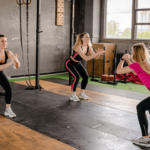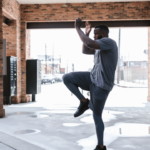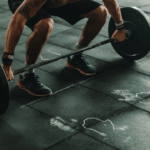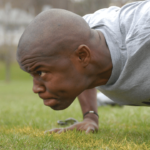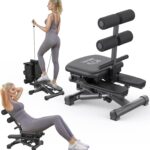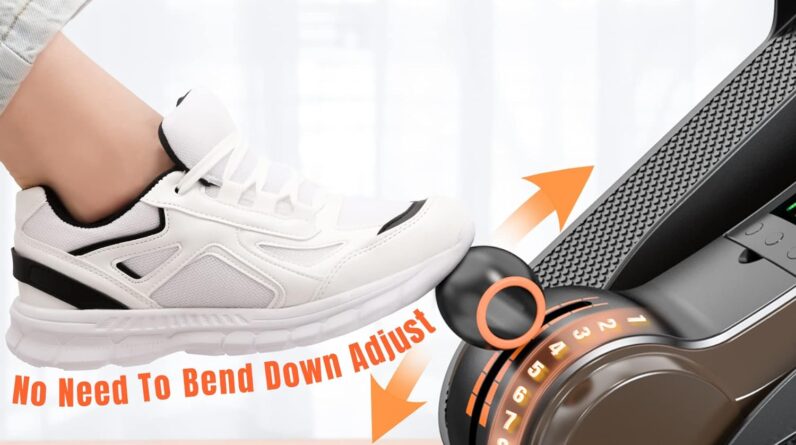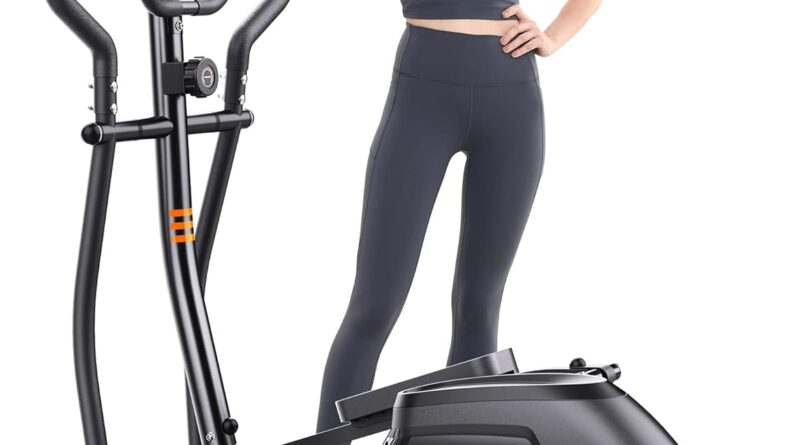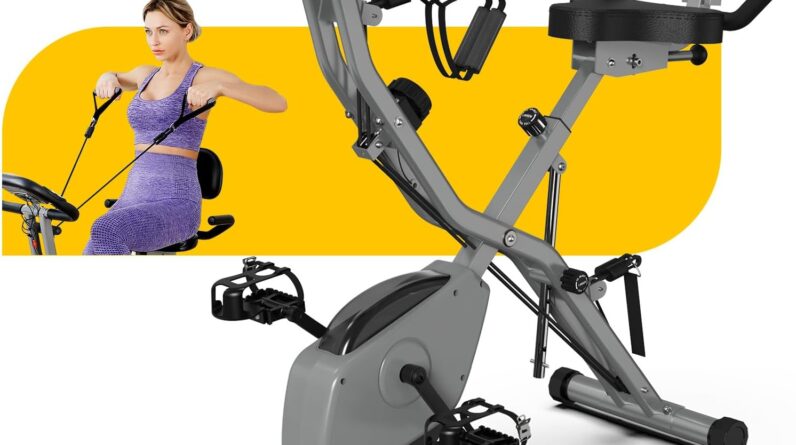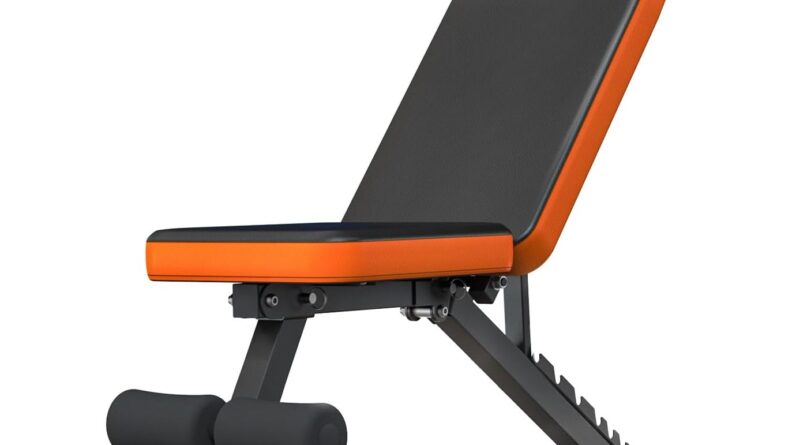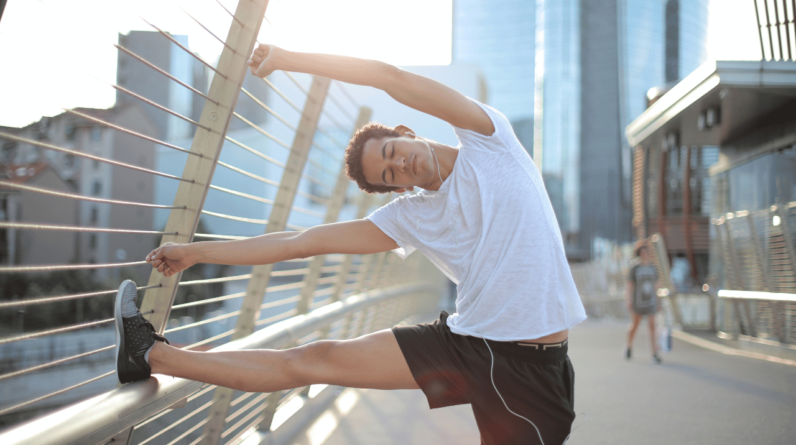
Disclaimer: This post may contain affiliate links. As an Amazon Associate, we earn from qualifying purchases.
Are you ready to take your running to the next level with the help of bodyweight exercise for runners?
Imagine yourself effortlessly gliding through the finish line, feeling strong and powerful with each stride.
To achieve this level of performance, it’s essential to incorporate bodyweight exercises into your training routine. Just like the gears of a well-oiled machine, your body needs a balanced and strong foundation to prevent injuries and improve overall performance.
In this article, we will dive into the world of bodyweight exercise for runners, providing you with proven workouts that will increase your performance on the track or trail. These workouts, designed by fitness expert Brittany Smith, specifically target neglected movements and running-specific muscles, ensuring that you develop the strength and stability necessary for peak performance.
But it doesn’t stop there. We will also explore the benefits of other key bodyweight exercises such as squats, lunges, and planks, which strengthen your entire body, improve your overall health, and enhance your running ability.
So, get ready to lace up your shoes and unlock your full running potential with these proven bodyweight workouts. Mastery awaits you!
What are the benefits?
Improving muscular strength through bodyweight exercises can enhance overall health and running ability, allowing you to conquer challenging terrains and achieve faster race times. Incorporating bodyweight exercises into your training routine offers a range of benefits that can directly impact your performance as a runner.
First and foremost, bodyweight exercises are accessible to everyone, as they don’t require expensive equipment and can be done anywhere. This makes them a cost-effective and convenient option for runners of all levels.
Additionally, bodyweight exercises are less prone to injury compared to weighted exercises, reducing the risk of setbacks and allowing for consistent training.
By targeting neglected movements and running-specific muscles, bodyweight exercises help prevent muscle imbalances and injury, promoting a more balanced and efficient running form. Strengthening your legs, core, and upper body through exercises like squats, lunges, and push-ups can improve your overall power and stability, leading to better running performance.
Furthermore, bodyweight exercises improve muscular endurance, allowing you to maintain proper form and technique throughout your runs. This can result in reduced fatigue and better running efficiency, ultimately leading to improved race times.
Incorporating bodyweight exercises into your training routine not only enhances your running ability but also contributes to your overall health and well-being. By becoming a stronger, more dynamic runner, you can push your limits, achieve new personal records, and enjoy the many benefits that come with an active lifestyle.
Key exercises
Enhance your running prowess with these essential moves that will take your performance to the next level. Incorporating key bodyweight exercises into your training routine can have a significant impact on your running ability and overall performance.
These exercises target the muscles and movements that are often neglected in running, helping to prevent imbalances and reduce the risk of injury.
The first exercise is the squat, which works your legs and core, improving your run times and strengthening your muscles for better endurance.
Next, the lunge is important for working your legs unilaterally, ensuring that both sides are equally strong and balanced.
The single-legged deadlift is crucial for developing glute strength, lower back stability, and improving balance.
Planks are a non-impactful core exercise that builds overall strength and stability, which translates to better form and efficiency in your running.
Pull-ups target your upper back, arms, and core, helping to improve your posture and upper body strength.
Lastly, push-ups focus on your triceps and chest, contributing to a stronger upper body and improved running performance.
By incorporating these key bodyweight exercises into your training regimen, you can build a strong and powerful body, improve your balance and posture, and ultimately enhance your running performance.
Remember to start with proper form and gradually increase the intensity of the exercises as you progress. Dedicate time each week to these essential moves, and reap the benefits of improved running performance and overall health.
Proper form tips for bodyweight exercise for runners
Get ready to take your running to the next level by mastering proper form in these essential moves. Proper form is crucial in maximizing the effectiveness of bodyweight exercises and preventing injuries. Here are some tips to help you nail your form.
- When performing squats, focus on maintaining a straight back and pushing through your heels. Gradually increase the depth of your squat as you become more comfortable and stronger.
- For lunges, make sure to step back far enough so that your front knee stays directly above your ankle. Keep your upper body tall and engage your core for stability.
- In single-legged deadlifts, hinge at your hips and keep your back straight. Focus on balancing on one leg and engage your glutes to maintain stability.
- During planks, keep your body in a straight line from head to toe. Engage your core muscles and avoid sagging or lifting your hips.
- When doing pull-ups or assisted pull-ups, engage your back muscles and avoid using momentum or swinging. Keep your core tight and pull yourself up until your chin is above the bar.
- Lastly, for push-ups, maintain a straight body position and avoid sagging your hips or arching your back. Lower yourself close to the ground while keeping your elbows close to your body.
By mastering proper form in these essential bodyweight exercises, you’ll not only improve your running performance but also reduce the risk of injuries. So take the time to focus on your form and reap the benefits of a stronger, more efficient running stride.
Training frequency
To optimize your training, it’s recommended that you incorporate these bodyweight exercise for runners into your routine three to four times per week. Consistency is key when it comes to improving your running performance.
By regularly performing these exercises, you’ll build strength, improve balance, and prevent injuries.
By dedicating specific days to focus on bodyweight exercises, you allow your body to recover and adapt to the demands of running. This frequency allows for optimal muscle growth and development. It also allows you to fine-tune your form and technique, which is crucial for running efficiency.
When incorporating these exercises into your routine, it’s important to listen to your body. If you feel fatigued or sore, it’s okay to take a day of rest or perform lighter exercises. Remember, rest and recovery are just as important as the actual training.
To make it easier to stick to your training schedule, consider adding these bodyweight exercises to your warm-up or cool-down routine. This way, you can ensure that you are consistently working on your strength and stability, without adding extra time to your workouts.
Remember, mastery takes time and consistency. By incorporating these bodyweight exercises into your routine three to four times per week, you’re setting yourself up for success in your running journey. So lace up your shoes, get moving, and watch your performance soar!
Expert recommendations
Incorporating these expert-recommended movements into your routine three to four times per week can lead to a significant reduction in running-related injuries. Here are three key reasons why you should consider adding these bodyweight exercises to your training:
1. Improve Performance: Bodyweight exercises target neglected movements and running-specific muscles, helping you become a faster, stronger, and more dynamic runner. By strengthening your legs, core, and upper body, you’ll have better balance, posture, and overall physical ability, which can lead to improved running performance.
2. Prevent Injuries: Neglected movements in running can lead to muscle imbalances and injuries. By incorporating these bodyweight exercises into your routine, you’ll be addressing those neglected areas, building strength, and reducing the risk of injuries. Stronger legs, glutes, and core muscles will provide better stability and support during your runs.
3. Aid Recovery: Bodyweight exercise for runners are an excellent way to supplement your running training and aid in the recovery process. They allow for easier recovery days while still providing a workout that targets the necessary muscles. By dedicating time to these exercises, you’ll be giving your body the opportunity to recover and rebuild, leading to improved overall health and performance.
Remember to focus on proper form and gradually increase the intensity of these exercises over time. By consistently incorporating these expert-recommended movements into your routine, you’ll be on your way to becoming a stronger, healthier, and more injury-resistant runner.
Frequently Asked Questions
Can bodyweight exercises alone improve running performance?
Yes, bodyweight exercises alone can improve running performance. They help build strength, balance, and prevent injuries. By targeting neglected movements and incorporating core exercises, you can become a faster, stronger, and more dynamic runner.
Are there any modifications or progressions to the recommended exercises for beginners?
Yes, there are modifications and progressions for beginners. For example, beginners can start with assisted push-ups or knee push-ups and gradually progress to full push-ups. It’s important to start at an appropriate level and gradually increase intensity and difficulty.
How can bodyweight exercises help prevent common running injuries?
Bodyweight exercises can help prevent common running injuries by improving muscular strength and balance, addressing neglected movements, and reducing muscle imbalances. Incorporating these exercises into your routine can enhance your running performance and reduce the risk of injury.
Should bodyweight exercise for runners be done before or after a run?
Bodyweight exercises are best done after a run. Running first allows you to warm up your muscles and increase blood flow. Then, bodyweight exercises can help strengthen and stabilize your muscles, reducing the risk of injury.
Can bodyweight exercises replace strength training with weights for runners?
No, bodyweight exercises cannot fully replace strength training with weights for runners. While bodyweight exercises are effective for building strength and preventing injuries, incorporating weight training can provide additional benefits and further enhance performance.
Key Takeaways
– Bodyweight exercise for runners are essential for distance runners to prevent injuries and improve performance.
– The 6 best bodyweight exercises for runners are squats, lunges, single-legged deadlifts, planks, pull-ups, and push-ups.
– Proper form and gradual increase in intensity are important when performing bodyweight exercises.
– Bodyweight exercises should complement running training and not replace it.
Conclusion
So there you have it, runner! Incorporating bodyweight exercises into your routine is essential for improving your performance and preventing injuries. This 10-minute workout, designed by Brittany Smith, Deputy Editor at Men’s Journal, targets neglected movements and running-specific movements.
Remember to focus on proper form and gradually increase the intensity. By adding these exercises to your training three to four times a week, you’ll be on your way to stronger muscles, better balance, and enhanced running ability.
Don’t neglect the rest of your body either – squats, lunges, planks, pull-ups, and push-ups are also crucial for overall health and running success. So lace up your shoes and get ready to take your running to the next level!
As an Amazon Associate, we earn from qualifying purchases.


